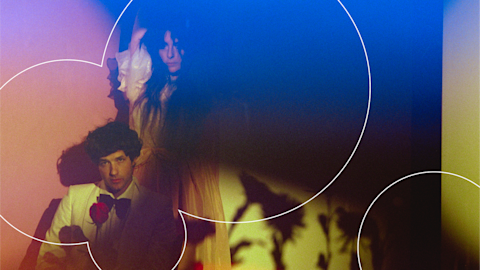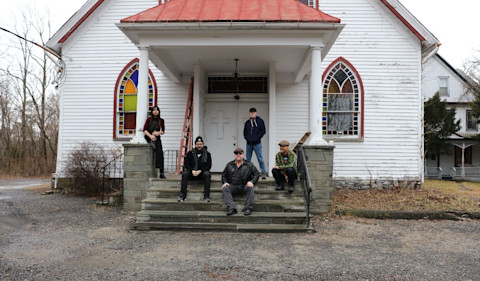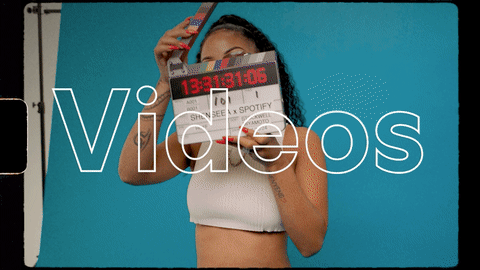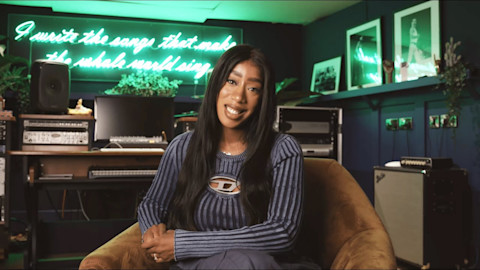"I've probably got like 5,000 45s at this point," says Eli Paperboy Reed. It's the kind of statement you expect from a squinting crate-digger who seldom sees the light of day outside the dusty racks of used-records shops and thrift stores—not necessarily from a dynamic soul singer. But in addition to being an electrifying purveyor of '60s- and '70s-inspired R&B with a new album called 99 Cent Dreams on the way, Reed is in fact a passionate record collector and DJ who loves to proselytize about the music that moves him.
"I love DJing," says Reed. "I love being able to expose my fans to music that I love and that I think is important. I think that's such a big part of who I am as an artist. So much of who I am comes from the music that I've listened to and the records that I've grown up with, so Spotify is such a great way to share that stuff."
Reed’s put time and heart into expanding his fans' experience beyond just streaming his own songs: He’s curated playlists, such as Eli's Funk & Soul 45s and 99 Cent Dreams, so he can take his listeners a little further with him on his journey.
"I was trying to make sense of the feeling of what [the album] 99 Cent Dreams is to me," he explains. "So [the playlist is] more about records that I felt were evocative of that idea… of 99-cent dreams being these things that were cheap or free but still brought you joy and happiness, especially being a kid.” He explains that many of the songs on the playlist were on a tape his dad made for him when he was a kid, called The Growing Up Tape. The songs on Eli’s Funk & Soul 45s are ones he often spins when he’s DJing in clubs.
"It's hard to find your way into that world," says Reed of the vintage soul he loves. "It can be intimidating. There's a whole culture among soul DJs—at least there used to be—of what they call 'cover-ups.' People would cover up the label so other people couldn't figure out what the records are. I think that's so counter to the culture of what soul music should be about. It's all about sharing the wealth."
The soul of the matter
Some of the records Reed admires were made at Sam Phillips Recording, which is also where he cut his new record. That’s the Memphis studio built by Sun Records founder Sam Phillips in the late '50s after he outgrew the legendary Sun Studios where he and Elvis Presley invented rock 'n' roll. "I've been listening to records that were made there for a long time," says Reed, "so I was certainly aware of the history of the place— Charlie Rich and Jerry Lee Lewis and stuff like that. But also there were some great soul records that were cut there."
Exploring the tunes that inhabit his DJ sets is an education in itself, and he calls out a select few.
- "Git Out" by Mitty Collier: "Mitty Collier was a big influence on me. She was my pastor, and I played at her church in Chicago. Mitty was a big mentor to me—I love all of her records, that one specifically. It's also one of the only soul records you hear that has a bass solo in it."
- "Space Man" by Aaron Neville: “Probably my favorite Aaron Neville song, and a side of Aaron Neville you don't hear very often. It's a crazy rock ‘n’ roll record, almost. The song is about him getting drunk with an alien, it's pretty amazing.”
- "Three Hearts in a Tangle" by James Brown: "'Three Hearts in a Tangle' is one of my faves. It's a country song, actually, that [Brown] covered. I think it's a Jim Reeves song that he did this funk version of. I don't know who came up with the idea to do that. Hopefully it was James himself—that's a great one."
Reed actually credits his love of country music with influencing a lot of his songwriting. "I think country songwriting is some of the greatest American songwriting there ever was—I love the turns of phrase; I love the metaphors even if they're cheesy. Coat of Many Colors is just a masterpiece of a record," he says of the Dolly Parton classic. "The song, the performance—everything about it is perfect."
Adding hip-hop to the mix
But on his new album, Reed's love of hip-hop shines through in his music for the first time. "My brother was a big hip-hop fan when I was a preteen and young teenager," he recalls. "I was with him listening to Wu-Tang and Biggie, JAY Z, Nas—a lot of the classic '90s records."
Big Daddy Kane’s guest spot on the record’s title track was one of those things where the magic just fell into place. Kane reached out to Reed as a fan on Instagram, and Reed sent him the track; Kane was into it, put down his verse, and sent it back. "I kind of pinch myself that it actually happened," Reed confesses. "I just felt like he added so much and such a unique flavor. I feel like the song would not be the song without Kane on it."
In the syncopated funk grooves of "Tryin'," the gospel tinge of "New Song," and the background vocals of veteran R&B group The Masqueraders, the styles in which Reed has steeped himself are easily discernible on 99 Cent Dreams. Still, he says, "It's not about any specific influences; it's about all the things that I've taken in over the years and how I've reconstituted them to become my own particular slant on it."
That said, as Reed begins his career's second decade, he’s become more comfortable with comparisons. He acknowledges that 10 years ago, he probably would have felt more determined to assert his individuality. “Now I think it's quite obvious, if you listen, where I'm coming from and what kind of records I love,” he says. “The records I like are informed by a certain sound. I hope that if you put 99 Cent Dreams on you don't say, 'This sounds like [the year] 19-whatever.' I hope that people say, 'Oh, that sounds like a Paperboy Reed record.'"
—Jim Allen






